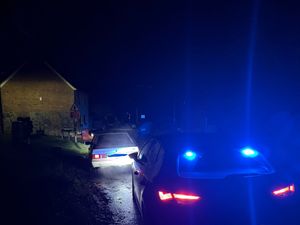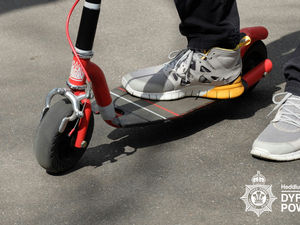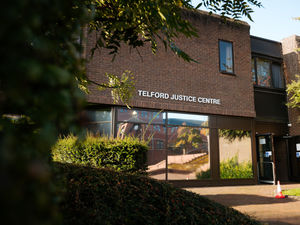Sally Adey: 24 on trial over Tunisia museum terrorist attack which killed Shropshire woman
Two dozen people, including two women, have gone on trial for their alleged roles in the 2015 attack on Tunisia's Bardo National Museum that killed 21 tourists, including Shropshire woman Sally Adey.

Mrs Adey, 57, of Caynton, near Shifnal, was killed by terrorists when they stormed the museum in Tunis.
The two museum attackers, who authorities said trained in a camp in neighbouring Libya, were killed by security forces, but a lengthy investigation uncovered a network of helpers who allegedly provided direct or indirect support for the operation.
A dozen of those on trial could face death sentences if convicted of playing an active role in the attack.
They are charged with voluntary homicide with premeditation.
Three of the 24 defendants, who had not been held in jail, were absent from the courtroom on Tuesday.
Two women were among the accused in court, their bodies draped in traditional white Tunisian robes, their faces uncovered.
An inquest into Mrs Adey's death in February last year heard the harrowing and heartbreaking details of the moments she was shot, as she told her husband: "Oh God Rob, I am hit."
Shropshire Coroner, John Ellery, recorded a conclusion of unlawful killing, and said that Mrs Adey had died as a result of catastrophic blood loss from a single rifle bullet wound.
The attack on the famed museum was the opening salvo in a series of assaults in this north African country, including the killing of 38 people, mostly British tourists, at a beach hotel.
All were claimed by the Islamic State group.
Some critics have contended that the lengthy investigation into the Bardo attack got off to a false start, with numerous people arrested but then freed later.
Judge Bachir Akremi wrote in his report that confessions obtained at the start of the investigation were obtained by torture, and some accusations against the suspects were "imaginary".
Lawyer Samir Ben Amor contends that if police "had done their job correctly from the start, the attack at the Sousse (beach hotel) could have been avoided".
"Numerous people among those who prepared and planned it are the same ones implicated in the Bardo attack," he said.
A Tunisian student who trained with Libyan militants attacked the Imperial Hotel near the Mediterranean resort town of Sousse on June 26, 2015, killing 38 people in a rampage on the beach and inside the hotel.
Some 30 suspects went on trial in May in the Sousse attack, which has been suspended so that lawyers could study defendants' files.
Authorities say strikes on tourist attractions were deliberate attempts to cripple the key economic sector for Tunisia.
In yet another attack, 12 Republican Guards aboard a bus were killed by a suicide bomber in November 2015 on the main avenue in Tunis.
Tunisia has been in a state of emergency for some 20 months.





